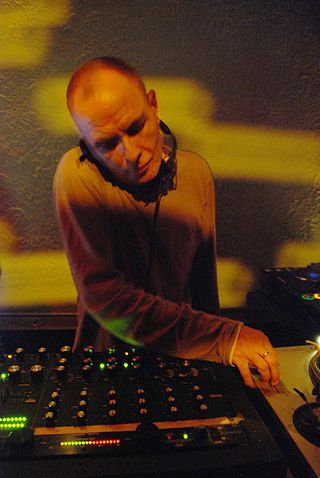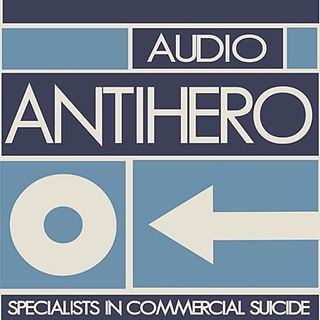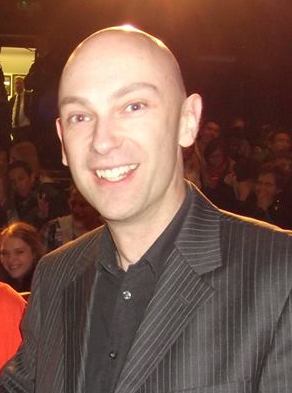
A rave is a dance party at a warehouse, club, or other public or private venue, typically featuring performances by DJs playing electronic dance music. The style is most associated with the early 1990s dance music scene when DJs played at illegal events in musical styles dominated by electronic dance music from a wide range of sub-genres, including drum and bass, dubstep, trap, break, happy hardcore, trance, techno, hardcore, house, and alternative dance. Occasionally live musicians have been known to perform at raves, in addition to other types of performance artists such as go-go dancers and fire dancers. The music is amplified with a large, powerful sound reinforcement system, typically with large subwoofers to produce a deep bass sound. The music is often accompanied by laser light shows, projected coloured images, visual effects and fog machines.

Madchester was a musical and cultural scene that developed in the English city of Manchester in the late 1980s, closely associated with the indie dance scene. Indie-dance saw artists merging indie music with elements of acid house, psychedelia and 1960s pop. The term Madchester was coined by Factory Records' Tony Wilson, with the label popularised by the British music press in the early 1990s, and its most famous groups include the Stone Roses, Happy Mondays, Inspiral Carpets, the Charlatans, James and 808 State. It is widely seen as being heavily influenced by drugs, especially MDMA. At that time, the Haçienda nightclub, co-owned by members of New Order, was a major catalyst for the distinctive musical ethos in the city that was called the Second Summer of Love.

The Haçienda was a nightclub and music venue in Manchester, England, which became famous during the Madchester years of the 1980s and early 1990s. It was run by the record label Factory Records.

A free party is a party "free" from the restrictions of the legal club scene, similar to the free festival movement. It typically involves a sound system playing electronic dance music from late at night until the time when the organisers decide to go home. A free party can be composed of just one system or of many and if the party becomes a festival, it becomes a teknival. This typically means that drugs are readily available. The word free in this context is used both to describe the entry fee and the lack of restrictions and law enforcement.
An acid house party was a type of illegal party typically staged in abandoned warehouses between 1987 and 1989. Parties played acid house and acid techno music, electronic music genres with a distinct sound from the use of the Roland TB-303 synthesizer. The origin of the term acid house party is disputed coming either from the 1987 song "Acid Tracks" by Phuture, or the consumption of MDMA and LSD that were common at the parties.
Genesis'88 was a party promotion crew who threw some of the first acid house parties also known as raves in the United Kingdom from 1988 to 1992.

Sunrise Radio is a 24-hour Asian commercial radio station, focusing on entertainment, music and news from the Indian subcontinent. It broadcasts to the Greater London area on 963/972 AM, nationally on DAB through the Sound Digital multiplex, and via the internet.

The Second Summer of Love was a late-1980s social phenomenon in the United Kingdom which saw the rise of acid house music and unlicensed rave parties. Although primarily referring to the summer of 1988, it lasted into the summer of 1989, when electronic dance music and the prevalence of the drug MDMA fuelled an explosion in youth culture culminating in mass free parties and the era of the rave. The music of this era fused dance beats with a psychedelic, 1960s flavour, and the dance culture drew parallels with the hedonism and freedom of the 1967 Summer of Love in San Francisco. The smiley logo is synonymous with this period in the UK.
Balearic beat, also known as Balearic house, Balearic, Ibiza house or Ibizan chillout, is an eclectic blend of DJ-led dance music that emerged in the mid-1980s. It later became the name of a more specific style of electronic dance/house music that was popular into the mid-1990s. Balearic beat was named for its popularity among European nightclub and beach rave patrons on the Balearic island of Ibiza, a popular tourist destination. Some dance music compilations referred to it as "the sound of Ibiza", even though many other, more aggressive and upbeat forms of dance music could be heard on the island, such as Balearic trance.
Danny Rampling is an English house music DJ and is widely credited as one of the original founders of the UK's rave/club scene.

Tribal Gathering is the original British electronic dance music festival that between 1993 and 2004 catered for different types of dance music cultures such as techno, house and drum & bass. After 18 years, Tribal Gathering returns in 2023 for a two-day event to celebrate its 30th anniversary.

Eddie Richards, also known as Evil Eddie Richards and Jolly Roger, is a British DJ. He was one of the first DJs to champion house music back in the mid 1980s and one of the UK's original mix DJs residing at London's Camden Palace. Along with being a House pioneer, Eddie is also considered the "Godfather" of a subgenre of house, known as Tech House.
Encyclopaedia Psychedelica International was an independent London-based magazine in the late 1980s that mixed a return to hippie values combined with new emerging technology, at a time when to call someone a 'Hippie' was considered an insult. This publication may be considered a rallying point for those who were looking for a greater degree of spirituality-based themes in everyday life, and simultaneously a call to action for the early cyberpunk community in the UK and beyond. It was a stepping stone towards the group's public event production activities, which included a rave called Evolution in 1990, and the Megatripolis nightclub, which was a regular club night attended by David Bowie and other counterculture personalities of the era.
Quadrant Park also known as the Quad or Quaddie was a nightclub in Bootle, UK opened during the late 1980s to the early 1990s. and one of the most important in the UK at the time. and was known to attract a number of international guest DJs. The main styles of music played were Italo house and acid house, retrospectively it could also be defined an early Superclub.

Acid house is a subgenre of house music developed around the mid-1980s by DJs from Chicago. The style is defined primarily by the squelching sounds and basslines of the Roland TB-303 electronic bass synthesizer-sequencer, an innovation attributed to Chicago artists Phuture and Sleezy D circa 1986.

Audio Antihero is a British independent record label formed in October 2009 and based in South East London. They have been the centerpiece of several radio BBC, PRI and international radio stories.

Shaun Attwood is an English former ecstasy trafficker turned YouTuber, speaker, activist and author.

Centreforce also known as 88.3 Centreforce and Centreforce Radio is a former pirate radio station, now legally broadcasting to London, North West England and North Wales on DAB radio. It was instrumental during the Second Summer of Love period of acid house and rave music culture in the UK.

Shoom was a weekly all-nighter dance music event in London, England, between September 1987 and early 1990. It is widely credited with initiating the acid house movement in the UK. Shoom was founded by Danny Rampling, who was then an unknown DJ and record producer, and managed by his wife Jenni. It began at a 300-capacity basement gym on Southwark Street in South London. By May 1988, its growing popularity necessitated a move to the larger Raw venue on Tottenham Court Road, Central London, and a switch from Saturday to Thursday nights. Later relocations were to The Park Nightclub, Kensington and Busby's venue on Charing Cross Road.
Tony Colston-Hayter is a former British acid house party promoter who was active in the late 1980s and was later convicted for theft and fraud offences. Colston-Hayter played video games as a child and set up three businesses in that sector whilst still at school. He afterwards became a professional gambler, claiming to be the second-most successful blackjack player in the country.













